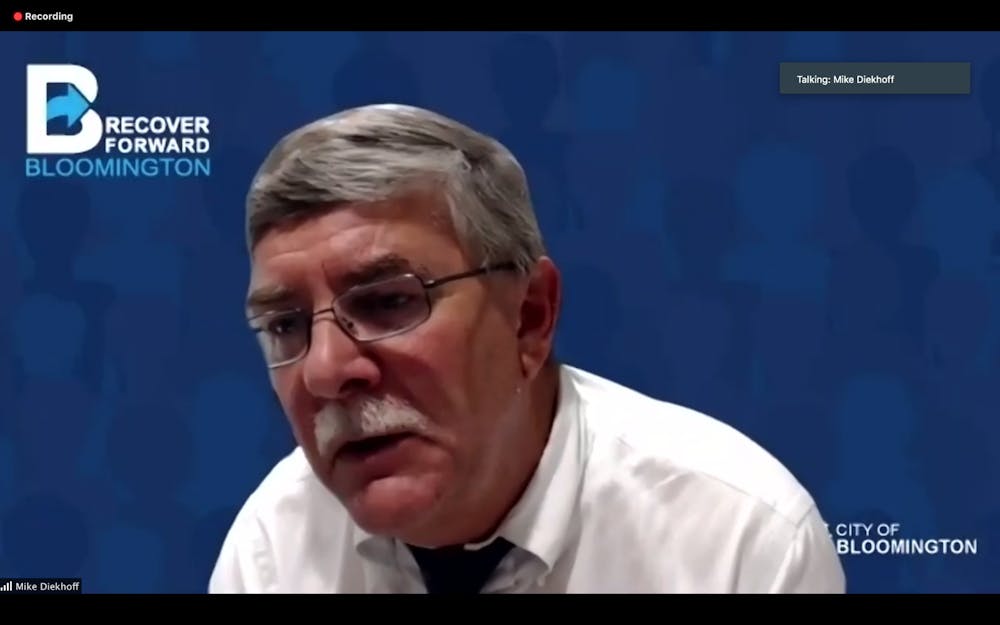Multiple community members spoke out Wednesday night against Chief Mike Diekhoff after he said he doesn’t think systemic racism exists within the Bloomington Police Department.
"I believe that we have a very forward-thinking department,” Diekhoff said. “I believe our officers don't have racist thoughts, don't participate in racist activities.”
His statement was in response to a question from Bloomington City Council member Isabel Piedmont-Smith, who asked Diekhoff to acknowledge systemic racism within policing during the council’s Public Safety Committee meeting. Diekhoff amended his remark after eight people made public comments criticizing his reply.
One person said it showed law enforcement officials aren’t willing to accept criticism and change their practices.
Jada Bee of Black Lives Matter Bloomington questioned how Diekhoff came to the conclusion that BPD officers “don’t have racist thoughts.”
“I would like to know what criteria he is basing that assessment on,” she said. “Were there any Black people or brown people involved in making that assessment of his police force, given the fact that most of his police force is white and he himself is white?”
Bee said she disagreed with the people who at last week’s budget hearing for BPD said racist incidents outside Bloomington shouldn’t be considered when it comes to policy for the local department.
“How is BPD any different than any other police force, other than the fact that they aren’t currently murdering Black people?” she asked.
A few public commenters said even if officers aren’t openly racist, they still contribute to structural racism embedded in the American police system.
“Racism isn’t just about being in the Klan or expressing negative views about people of color,” said Elizabeth Williams. “It shows up in more subtle attitudes and interactions.”
Savannah Pearlman said people can do something racist without having ill intentions.
“We’re not claiming that every police officer has bad intent,” she said. “Bad intent is not a requirement for being racist, nor is it required for acting in racist ways or upholding racist systems.”
Donyel Byrd, who said she’s a social worker, urged Diekhoff to make use of Black Lives Matter Bloomington’s educational resources.
“There were some deficits in his understanding of systemic racism,” Byrd said. “When we have disproportionate numbers of Black individuals involved in policing in Bloomington, we have systemic racism. It’s not about individual thoughts or individual behavior.”
Bloomington resident Nate Rosenbloom said people of color disproportionately face issues that can lead to crime, such as homelessness.
“The question there is, ‘What are the police supposed to do about that?’” he said. “They’re not equipped to deal with that, which is why we need services that solve the root problem.”
After the public comment period, Diekhoff said he misspoke and that his statement didn’t convey what he intended it to.
“Certainly there is systemic racism in policing throughout history and still exists today,” he said. “We all have racist thoughts, but we work really hard to overcome those racist thoughts.”
Diekhoff reiterated the importance of training.
After the chief’s clarification, Bloomington resident Teal Bingham said she still wasn’t convinced that Diekhoff grasps the meaning of systemic racism and its place in BPD.
“If the chief of police cannot speak clearly about systemic racism and its effects on his department, it’s clear to me that the training they are receiving is inadequate,” Bingham said.




